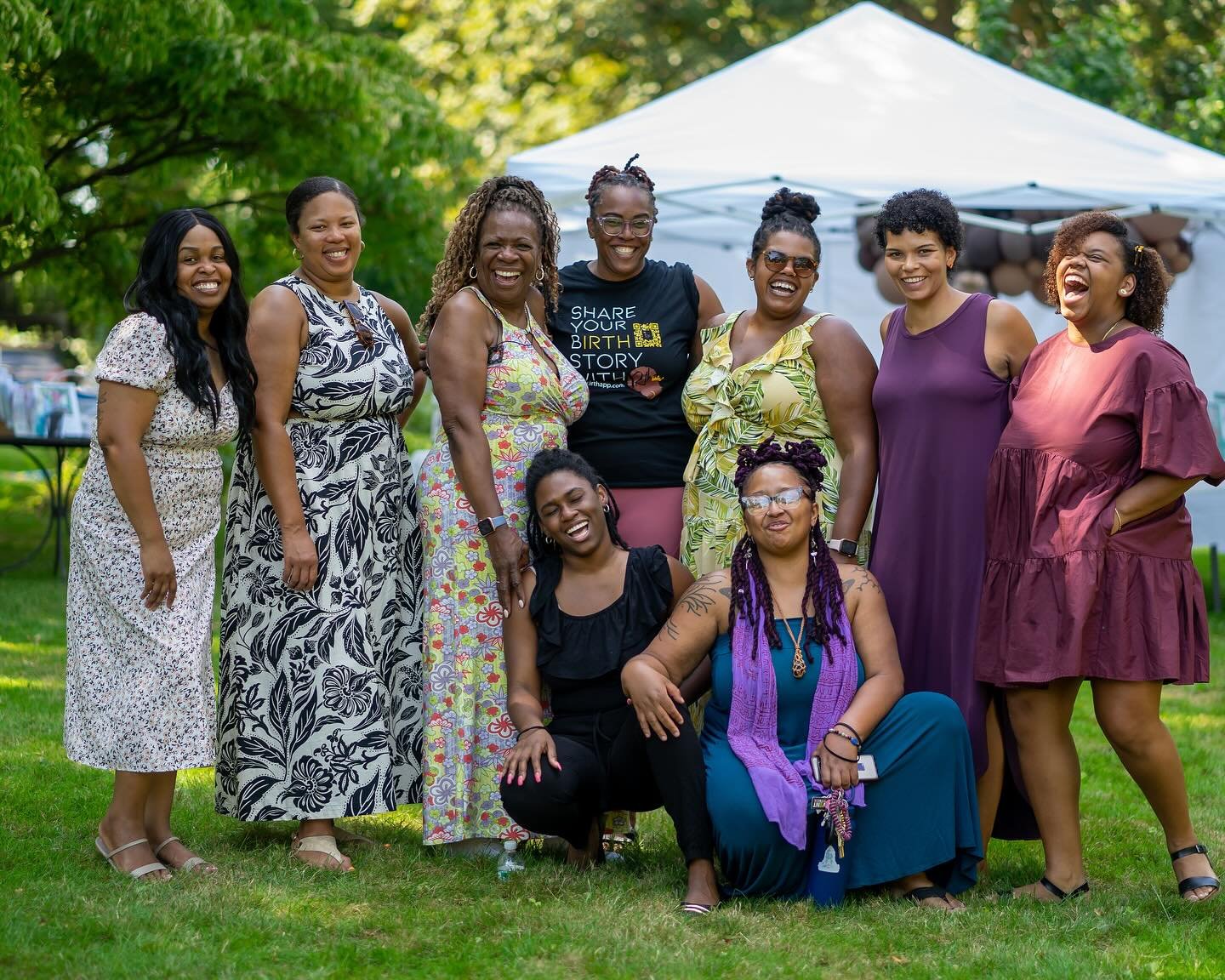December Be the Change: BirthNet
By Natalie Criscione
The reported statistics were shocking. Black women were dying at nearly 3 times the rate of white women and black babies, nearly 5 times the rate. “Right here. In my neighborhood!” says Betsy Mercogliano, a longtime Albany Resident and one of BirthNet’s founders and board members; “I left that meeting literally sick to my stomach. I had been working in the community for decades doing birth work.” Yet, here were statistics provided in 2015, through a presentation sponsored by the Albany County Department of Health, “right in front of me….dear god!” For Mercogliano and the other BirthNet members, this was a moment of reckoning and a clear turning point.
As an organization, BirthNet was already accustomed to encouraging change within the status quo. The members had known since their founding in 1976, that authentic pregnancy, birthing, and breastfeeding information and support for women was in short supply and understood that giving birth was, as Mercogliano says, “not a medical event but a health event, a family event.” Through the Family Life Center, they provided childbirth classes, doula services, and support for growing families. Such support reduced the rates of c-sections, postpartum depression, and maternal and infant mortality; and it resulted in higher rates of breastfeeding and overall positive outcomes. They knew from the stories their mothers told and from their own personal experiences that, given choices, most women are empowered to have a different kind of birth experience than what has historically been presented to them as the only option. But, hearing those statistics mobilized the board to rethink their purpose, narrow their focus, and commit to the marginalized communities most in need.
In the months that followed, the BirthNet board worked tirelessly to bring people within Albany’s at-risk neighborhoods into the center of the conversation. They sought out members from black and brown communities, churches, civic organizations, SUNY, Albany Medical College, and anywhere they could find minority voices to share in the conversation. “We decided that if the issue was to address what was happening in the black and brown community, us white women cannot be the ones in charge,” says Mercogliano. A new board was soon developed and new questions were asked: “With inequities based on racism, what do we do to improve birth outcomes for all mothers and babies?” Of course there was no easy answer to that question, and there were hundreds of things that needed to be done.
With a new set of goals, BirthNet continued to educate, advocate, fundraise, participate in activism, and maintain community and legislative engagement, this time aimed at making birth choices and doula services available to and from the populations most in need. “The previous local doula trainings had had no awareness, focus, or attention given to racism and the specific needs of families of color,” says Mercogliano. So, with the assistance of grants, BirthNet collaborated with other organizations like Mama Glow (https://mamaglow.com/) and Ancient Song Doula Services (https://www.ancientsongdoulaservices.com/), both based in NYC, to set up trainings in the Capital Region that were specifically geared toward increasing the numbers of black and brown doulas, birth educators, and lactation advocates.
The new board considered how they could alleviate the barriers such as the expense of not only training and supporting doulas, but also providing compensation for their services. Funding sources such as the BirthNet Doula Equity Fund were expanded to include the Esther Patterson Teen Parent Doula Equity Fund, named after a former board member and community activist who passed away in May of 2024. Further, through BirthNet and other similar organizations’ lobbying efforts and Governor Hochul’s support, initiatives are now in place for Medicaid to reimburse doulas. “This is beginning to happen throughout the country,” says Mercogliano, making birthing choices more available to all.
Despite the progress, however, challenges remain. Throughout New York State, for example, dozens of hospitals that had offered maternity care have closed. Maternity care deserts are growing and, more often than not, the impact is most detrimentally felt within communities of color. BirthNet’s effort locally to save the Burdett Birth Center in Rensselaer County from closure represents a small victory within a world where corporate greed often silences the voices of the most vulnerable.
During the month of December when you are making a purchase at Honest Weight and choose to round up to the nearest dollar, you too are envisioning a world that cherishes all moms and babies.
For more information about BirthNet or to find out how you can further contribute, visit their website. For information about the Equity Funds contact Sarah Read at read.sarah@gmail.com or Liz Addeo at liz.leue@gmail.com. For information about providers and testimonials visit here.
View all the Coop Scoop Blog posts here.



